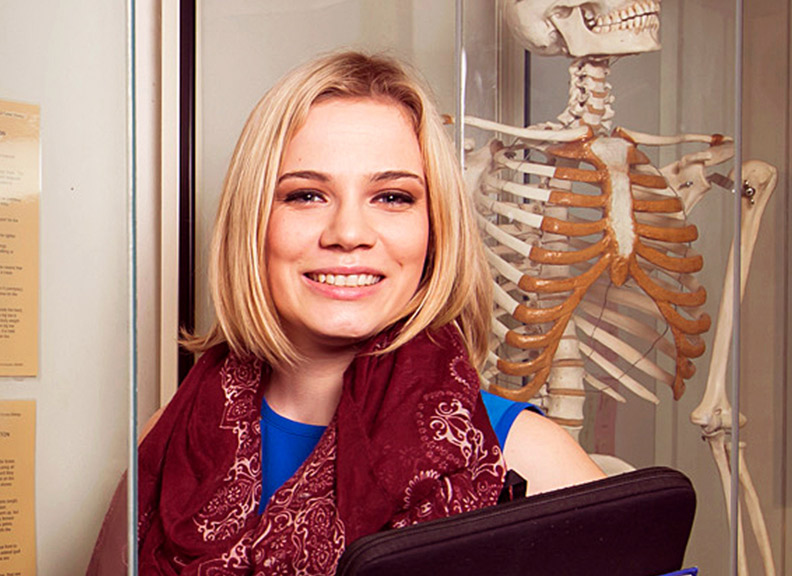Undergraduate
Psychology (Extended Major)
Contact us
Address
Student Central
The University of Western Australia (M355), 35 Stirling Highway, Perth, Western Australia 6009
Telephone
131 UWA (131 892)
International
(+61 8) 6488 1000
Hours
Frequently asked questions
Events you may be interested in
Show more eventsCareers and further study
This course opens up a world of future study pathways and career opportunities.
Career Pathways
Psychology is relevant to almost any human endeavour, which means a psychology degree, or some complementary psychology studies, are relevant not only for traditional psychology careers, but for a wide range of careers. For example, there are psychologists designing cockpits for NASA, computer software interfaces, personnel selection systems, or age-appropriate toys; psychologists develop market research strategies, or train people in a variety of settings.
Traditional careers in psychology:
- Clinical Psychologist—assess, diagnose, and treat mental health conditions; design and assess treatment interventions; be involved in research, teaching and supervision; promote psychological health
- Clinical Neuropsychologist—assess and treat people with a wide range of brain injuries or disorders; design and assess treatment interventions; be involved in research, teaching and supervision; promote brain health
- Industrial and Organisational Psychologist—recruit and select personnel; design and evaluate behavioural training programs; develop leadership and management skills; optimise job design, performance, and workplace culture; foster employee wellbeing and work-life balance
- Educational and Developmental Psychologist, School Psychologist—assess developmental, learning, and behavioural difficulties; design and evaluate interventions; promote positive development
- Sport Psychologist—work with athletes and teams, addressing the wide range of psychological factors associated with sports performance (e.g., goal focus, team building, stress management, communication skills)
- Health Psychologist—assess community health issues; design, implement, and assess public-health and behaviour-change programs; promote health behaviours
- Forensic Psychologist—conduct forensic interviews; provide psychological assessments; give evidence in court proceedings,/li>
Please note these traditional career paths often require postgraduate studies and registration as a psychologist.
Non-traditional careers in psychology:
Public sector
- Government agencies
- CSIRO
- Australian Bureau of Statistics
- Federal and State Police Forces
Not-for-profit sector
- Mental health, addiction and disability support services
- Community and welfare services
- Children, youth and parenting services
- Charities
Private sector
- Corporate business
- Banks and financial service providers
- Professional service firms
- Market research, marketing, public relations, and advertising firms; consumer goods companies
- Employment services, and industrial relations
Education sector
- Schools and universities
Further Study
The Honours program in Psychology aims to develop your skills in addressing advanced conceptual issues in psychology and integrating a broad range of research findings within central theoretical concepts. You’ll also gain a deep understanding of current research within several areas of the discipline. You’ll learn to plan, implement, and interpret the findings of a major piece of empirical research and give brief oral presentations of research findings in a manner that is understandable to people not working in the same research area. The honours specialisation continues the research preparation from the earlier undergraduate years and prepares you for entry into a PhD and into discipline-accredited Master degrees that have a research component.
At present, postgraduate professional training is available in Industrial and Organisational Psychology, Business Psychology, Clinical Psychology, and Clinical Neuropsychology. Psychology Honours has been awarded Conditional Accreditation by the Australian Psychology Accreditation Council (APAC) as a fourth-year of psychology study, and graduates are eligible for provisional registration with the Psychology Board of Australia.
Fees and scholarships
Domestic Student Fees
For Commonwealth-supported places, student contribution amounts are charged by unit, based on area of study. For a fee estimate, go to the Fee Calculator and select “I want to price my units”. Fees are subject to annual indexation. Refer to the Handbook to identify the units required. More information on how fees are calculated.
Scholarships
Scholarships are available to students from a diverse range of backgrounds, including academic achievement, financial need, educational disadvantage, leadership and community service, artistic or sporting achievements, and being from a rural or remote area.
Fees for psychology
From 2021, the following accredited programs are eligible for the Australian Government Professional Pathway funding rates (HECS band 2).
- Bachelor of Psychology
- Bachelor of Psychology (Honours)
- Bachelor of Psychology and Bachelor of Arts
- Bachelor of Psychology and Bachelor of Commerce
While the Psychological and Behavioural Sciences major is also an accredited psychology course, different funding rates and fees apply (HECS band 4).
Cost of living
International Student Fees
There is no current fee information available for this course. Please visit the fee calculator to browse course fees from a previous year, or other courses.
Scholarships
Scholarships are available to students from a diverse range of backgrounds, including academic achievement, financial need, educational disadvantage, leadership and community service, artistic or sporting achievements, and being from a rural or remote area.
Cost of living
Admission requirements
The University of Western Australia welcomes applications from international and domestic school-leavers. If you’re interested in studying one of these majors, find out the admission details below.
English competency
English is the language of instruction and assessment at UWA and you will need to meet the English language requirements of the University to be eligible for a place.
Minimum overall IELTS score of 6.5, with no band less than 6.0.
Admission requirements
How to apply
Apply through TISC
- Log in to the TISC website
If you’re a Year 12 student studying a WACE course at a WA high school or a pathway program, you are already automatically registered with TISC. - Select your preferences
You can choose up to six preferences when you apply through TISC. You should list your preferences in order from your most desired course onwards; this way you’ll have plenty of options to get into UWA. - Lodging your application
You’re almost there! After answering a few questions, you’ll need to make a declaration about your application. - Application processing fee
Your TISC application is lodged once you’ve completed the payment. For more information on fees and payments, visit the TISC website.
Course details
About the course
Quick details
- Available
- Perth (Crawley campus)
- Full-time
- Part-time
- On-campus
- Semester 1, Semester 2
- 15-30 hours per week
- Undergraduate
- MJD-PSYDM
- Yes
What will I learn?
An undergraduate degree in psychology equips you with:
Specialist knowledge
- Normal and abnormal development – How do psychological abilities develop through the lifespan and how are psychological processes affected by ageing, brain damage and disease?
- Groups and organisations – How do our psychological abilities impact on relationships between people and groups in society? How do you optimise human performance in a work setting?
- Cognition and perception – How do our brains interpret inputs from the world? How do we perceive, think, remember and make decisions?
- Research methods – How do you measure psychological constructs such as intelligence, personality traits and social skills? How do you analyse data to make evidence-based decisions?
5 career opportunities you could pursue after a 3-year psychology degree

At UWA, a 3-year psychology degree equips you with valuable skills for the workforce. Discover the career opportunities and why UWA is the right choice for your psychology studies.
Course Structure
Extended majors enable you to dive deeper into a particular area of study and normally require 13 to 18 units studied over the course of your degree.
Why study with us?
Psychology can take you anywhere and everywhere. Psychology is relevant to almost any human endeavour, meaning a psychology degree, or some complementary psychology studies, are relevant not only for traditional psychology careers, but for a wide range of careers.
Becoming a psychologist
Begin your pathway to becoming a psychologist by selecting the Psychology extended major, available in the Bachelor of Psychology, OR the Psychological and Behavioural Sciences single major in the Bachelor of Science or Bachelor of Arts. To continue your pathway to registration as a provisional psychologist, follow this with a fourth year of study with Honours in Psychology. You can then undertake further postgraduate study in your chosen area of psychology to complete the studies required as part of registration.
Beyond your brain: How to blend your passion for law and criminology with your psychology degree
Your degree options
This major is only available within the Bachelor of Psychology or Bachelor of Philosophy (Honours) degrees. This is an extended major which means you undertake more units in this area. You are not able to pair this major with any other major.




 Bachelor of Psychology
Bachelor of Psychology
 Bachelor of Philosophy
Bachelor of Philosophy

 Anatomy and Human Biology
Anatomy and Human Biology  Human Resource Management
Human Resource Management  Marketing
Marketing  Neuroscience
Neuroscience  Philosophy
Philosophy